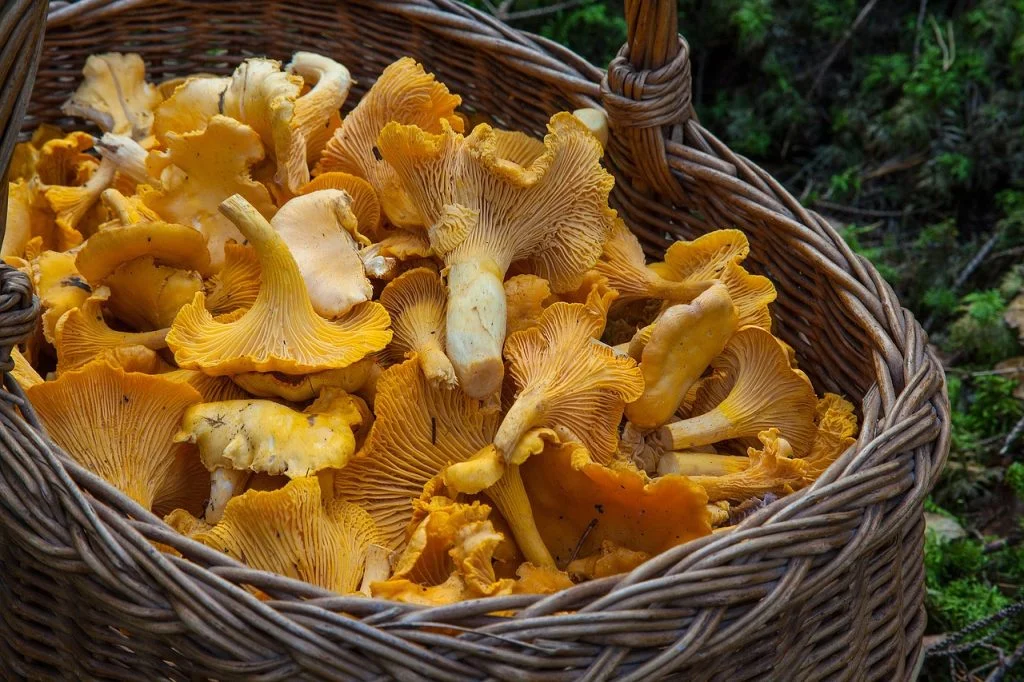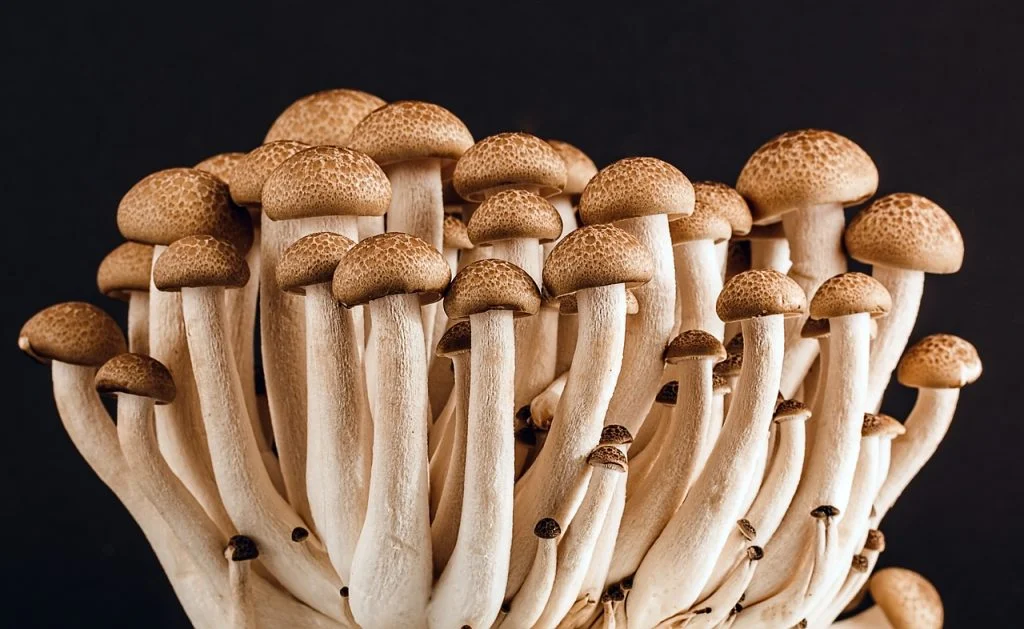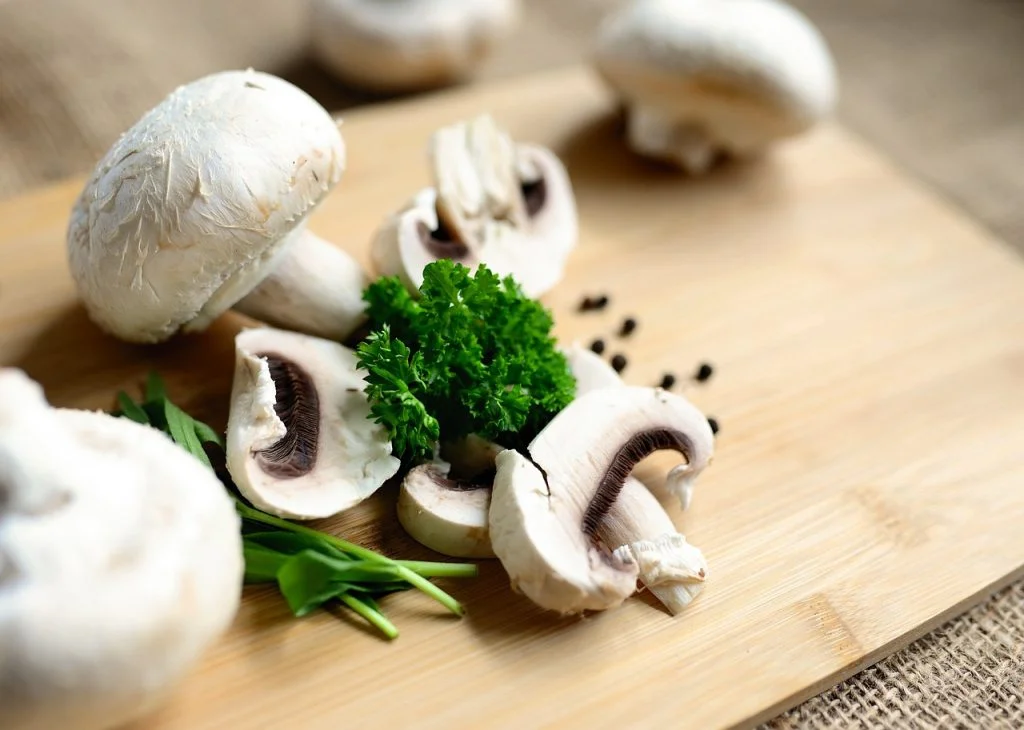There’s nothing quite like the thrill of discovering a new mushroom species in your backyard – or the panic when you can’t tell if it’s a friend or foe. Welcome to the life of a fungi fanatic! My love affair with mushrooms began with a rather embarrassing incident involving a pizza topping mix-up (don’t ask).
Since then, I’ve dedicated myself to uncovering the world of mushrooms, one spore at a time. Did you know that some mushrooms are more closely related to humans than plants? Buckle up, because these 50 mushroom facts are about to take you on a wild ride through the kingdom of fungi!
Nature alone is antique, and the oldest art a mushroom.
Henry David Thoreau
Mushroom Facts
Ready to unearth some amazing mushroom fun facts? As we dive into the mysterious and wondrous world of fungi, make sure you absorb every detail – there’s a quiz waiting for you at the end of this adventure!
- There are over 10,000 known types of mushrooms.
- Mushrooms are fungi, not plants.
- Some mushrooms are known for their hallucinogenic properties.
- The largest organism on Earth is a mushroom, the Armillaria ostoyae.
- Mushrooms can be used in bioremediation to clean up pollutants.
- The world’s most expensive mushroom is the White Truffle.
- Mushrooms do not require sunlight to grow, relying on organic matter for energy.
- Some mushrooms are deadly poisonous.
- Mushrooms release spores into the air to reproduce.
- The use of mushrooms as food dates back to ancient times.
- Psychedelic mushrooms contain psilocybin, a psychoactive compound.
- Shiitake mushrooms are known for their medicinal properties.
- Mushroom cultivation is a growing agricultural industry.

- Portobello mushrooms are simply mature Crimini mushrooms.
- Mushrooms have a unique taste known as umami, a fifth basic taste.
- Bioluminescent mushrooms emit light in the dark.
- Mushrooms are high in antioxidants and vitamins.
- The Fly Agaric mushroom is often associated with fairy tales.
- Mushrooms have a complex relationship with trees in forests.
- Oyster mushrooms are effective at breaking down plastic.
- Truffles are a type of highly prized underground mushroom.
- Some mushrooms have been used in traditional Chinese medicine for centuries.
- The world’s deadliest mushroom is the Death Cap.
- Mycoremediation is the use of fungi to decontaminate the environment.
- Lion’s Mane mushrooms are known for their brain health benefits.
- The study of mushrooms is known as mycology.
- Mushrooms can grow in a variety of habitats, including forests and lawns.
- Chaga mushrooms are consumed as a health-boosting tea.

- Mushrooms can absorb and store heavy metals from the soil.
- The Amanita phalloides mushroom is highly toxic.
- Morels are prized for their nutty flavor and unique texture.
- Mushrooms have no chlorophyll, unlike plants.
- Enoki mushrooms are popular in Asian cuisine.
- Some mushroom species are endangered due to habitat loss.
- Mushrooms can vary greatly in size and shape.
- The Ganoderma species are known as “reishi” mushrooms in traditional medicine.
- Button mushrooms are the most commonly consumed type.
- Fungi play a crucial role in soil health and ecosystem balance.

- Porcini mushrooms are a key ingredient in Italian cuisine.
- Mushroom spores can travel long distances through the air.
- Mushrooms can be grown indoors and outdoors in controlled environments.
- Some mushrooms have a symbiotic relationship with insects.
- Chanterelle mushrooms are known for their distinctive appearance and taste.
- Mushrooms have been studied for potential cancer-fighting properties.
- Fairy rings are a natural phenomenon involving mushroom growth in circles.
- Mushrooms are a good source of protein and fiber.
- Cordyceps fungi are known for infecting insects and other fungi.
- Mushrooms can be fermented to produce foods like tempeh.
- Mushroom spore prints are used for identification and art.
- Mycorrhizal mushrooms form mutually beneficial relationships with plant roots.
Mushroom Myths

Having explored some interesting facts about mushrooms, it’s now time to uncover some popular myths about them.
- Mushrooms Are All Poisonous
Not at all! While some mushrooms are indeed poisonous, there are countless edible varieties. These range from the common button mushroom to exotic types like shiitake and morel. It’s like saying all plants are poisonous just because a few are. Know your mushrooms, or stick to the grocery store varieties, and you’re good to go! - Mushrooms Have No Nutritional Value
This is a big misunderstanding! Mushrooms are low in calories but rich in nutrients. They’re a great source of B vitamins, selenium, potassium, and even protein. Think of them as nature’s multivitamin, wrapped up in a tasty package. - Mushrooms Can’t Be Grown at Home
You can totally grow them at home! It’s a fun and rewarding hobby. With a mushroom growing kit, or just some spores and the right substrate, you can cultivate your own edible mushrooms. It’s like having a little piece of the forest in your own backyard or even on your kitchen counter. - All Mushrooms Grow in the Dark
Not all mushrooms are basement-dwellers. Yes, many grow in shady, moist environments, but they don’t necessarily need total darkness. Some varieties even thrive in sunlight! Like plants, they’re diverse in their growing needs. - Mushrooms Are Vegetables
Surprise! Mushrooms are actually fungi, which is a completely different kingdom of life from plants. They don’t use photosynthesis like plants do. Instead, they absorb nutrients from their surroundings. So, next time you enjoy a mushroom, remember you’re not eating a veggie, but a fascinating organism from a whole different world!
No products found.
Mushroom Quotes

Mushrooms, nature’s humble yet fascinating fungi, have captivated the minds of many. Here are some quotes that I found about them: Let me know your favorite one.
Advice is like mushrooms. The wrong kind can prove fatal.
Charles E. McKenzie
Charles E. McKenzie, a figure less known in popular culture, uses this quote to draw a parallel between advice and mushrooms, highlighting the importance of discernment in both.
Mushrooms are like men—the bad most closely counterfeit the good.
Gavarni
Gavarni, a French illustrator, makes a thought-provoking comparison between mushrooms and human nature, pointing out how appearances can be deceiving.
I am… a mushroom; On whom the dew of heaven drops now and then.
John Ford
John Ford, an English dramatist and poet of the early 17th century, uses the metaphor of a mushroom to describe a person humbly receiving the occasional blessings of life.
All fungi are edible. Some fungi are only edible once.
Terry Pratchett
Terry Pratchett, the celebrated English author known for his humorous and witty writing, offers a quirky take on the edibility of mushrooms, with a hint of cautionary advice.
Life is too short to stuff a mushroom.
Shirley Conran
Shirley Conran, a British author and feminist, uses this quote to express a philosophy of living life to the fullest and not wasting time on trivial tasks, metaphorically represented by the laborious act of stuffing a mushroom.
Mushroom FAQ

I hope the quotes have sparked your curiosity about the enchanting world of mushrooms. As you step into our FAQ section, keep your eyes peeled for details – there’s a quiz coming up that’ll put your mushroom wisdom to the test!
- Are Mushroom Spores Dangerous?
Generally, no, but they can irritate allergies or respiratory issues in sensitive individuals. Handle mushrooms with care. - Can Mushrooms Be Frozen?
Yes, but cook them first to avoid sliminess. Store cooked mushrooms in an airtight container or freezer bag. - How Do Mushrooms Grow?
Mushrooms grow from spores, not seeds, in moist, dark places. They develop a network called mycelium before forming the actual mushroom. - What Mushrooms Taste Like Chicken?
The Chicken of the Woods mushroom has a chicken-like taste and texture. Always cook it properly. - Are Mushroom Supplements Good for You?
Mushroom supplements can offer health benefits like boosting immunity. Consult a healthcare professional before using.
No products found.
Mushroom Trivia

Welcome to the fun-gi quiz, where if you don’t get a single answer right, you might just turn into a mushroom overnight! Let’s see if you can ‘spore’ some points!
Conclusion
As we reach the end of our mushroom journey, it’s clear that these little guys are more than just pizza toppings. They’re a fascinating, diverse kingdom of their own, with secrets and surprises at every turn.
But let’s not forget their most important role: being the ultimate test of whether you’ve washed your vegetables properly. So, which mushroom fact surprised you the most? And more importantly, have you checked your fridge lately for any unexpected fungal guests?
Source Used For This Article

